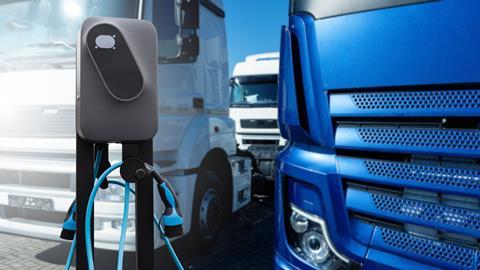The drive towards net zero in the heavy duty vehicle (HDV) sector could help to realise an estimated £2.4bn growth opportunity, according to the latest insight report from the Advanced Propulsion Centre UK (APC), titled “UK HDV supply chain opportunities to 2035”.
The APC forecasts the UK will produce almost 35,000 HGV and buses by 2035, with at least 75% of these being zero-emission at the tailpipe. This would have a widespread impact across multiple different pathways, predicting 50% BEV, 25% FCEV, 22% non-fossil fuel ICE, and 3% ICE diesel.
The report highlights significant opportunities across a range of high-value components for zero-emission HDVs manufactured in the UK, such as battery packs, electric drive units, fuel cell systems, hydrogen tanks, and high-power converters.
“Across these five component areas, we’ve identified an estimated UK opportunity of £2.4bn, with £870m value in just fuel cell systems alone, and £790m in batteries,” revealed Dr Hadi Moztarzadeh, head of technology trends at the APC
“This is a significant increase from 2025 with just £480m total opportunity in the UK, and from 2030 with £1.5bn total opportunity in the UK.”
Extracting the most value from this opportunity will require close collaboration between the UK government and industry, explained Aditya Thiru, one of the report’s authors.
“There are clearly a few key areas that businesses, especially those within the local automotive supply chain, can take advantage of, which would subsequently help the UK to lead the way across the HDV and transport sectors, particularly in fuel cell technologies,” he said. “To achieve this, there is the need to understand the energy infrastructure requirements to meet the 2040 zero-emission vehicle commitment for on-road heavy goods vehicles.
“Perhaps most importantly, however, the UK must accelerate the development of a ‘minimum viable’ charging and hydrogen refuelling infrastructure network for heavy goods vehicles and coaches, for the projected 2035 and 2040 demand.”
Highlighting the extent of the work required, according to the Clean Hydrogen Partnership, there are currently six hydrogen refuelling stations in the UK.
This latest release from the APC is just one in an ongoing series of regular industry insight reports from its Technology Trends team, all of which are available for free on the website.














